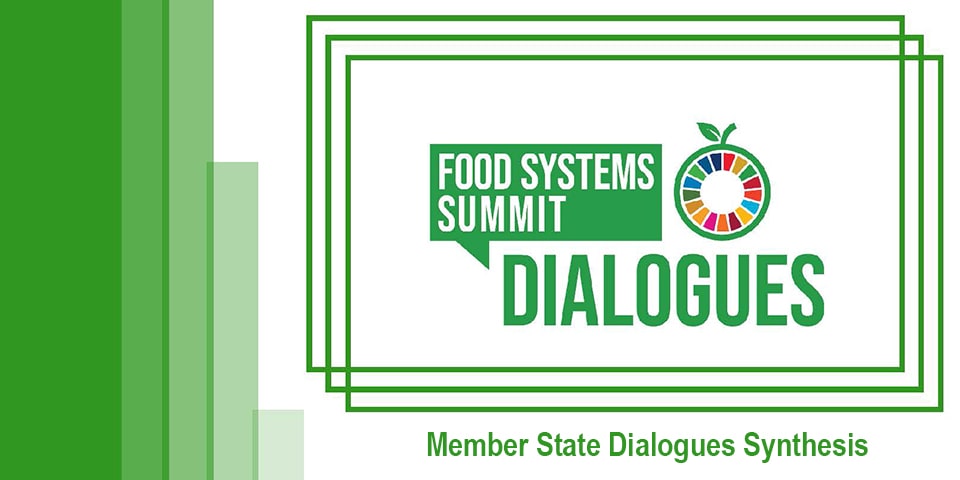[2 April 2022 Update] The synthesis of all UN Food Systems Summit Dialogues, including the one hosted by SEARCA, is now available here.
As food systems around the world continue to recover from the shock of the COVID-19 pandemic, the Southeast Asian Regional Center for Graduate Study and Research in Agriculture (SEARCA) hosted a Food Systems Dialogue "Breaking Silos: Transforming Agricultural Education and Research toward Sustainable Food Systems in Southeast Asia" to inform the first-ever United Nations Food Systems Summit (UNFSS), which will take place in New York in September 2021.
The milestone summit is drawing on the input of people from all over the world to identify sustainable solutions for the future of food.
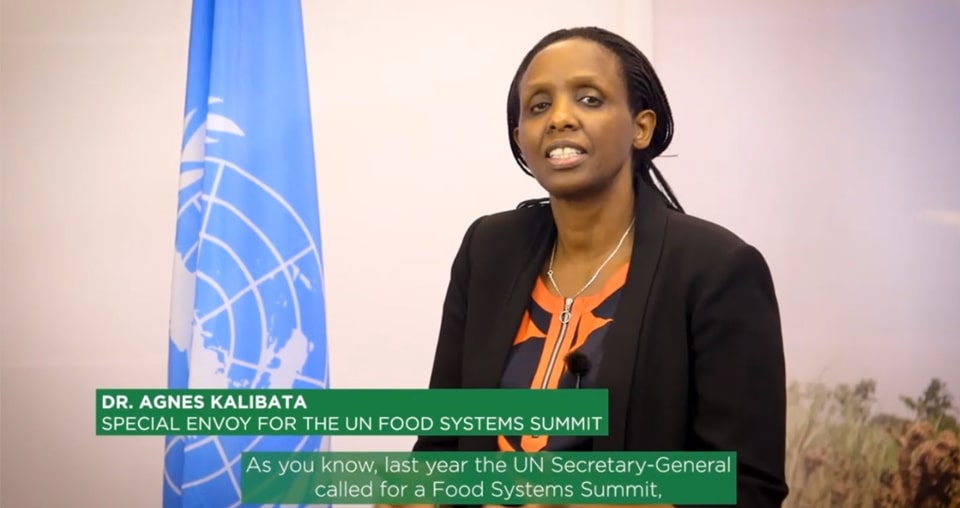
“Food is powerful. The food we eat brings us together as families, as communities, and as nations. It underpins our cultures, our economies, and our relationship with the natural world. The world’s food systems touch every aspect of human existence, which makes them valuable instruments of change,” said Dr. Agnes Kalibata, UN Secretary General’s Special Envoy, 2021 UNFSS, during the Dialogue.
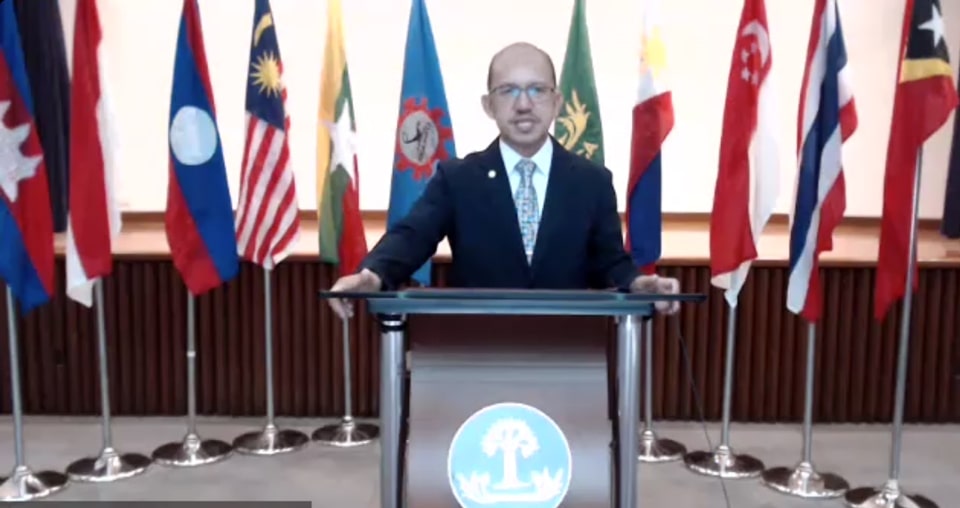 Dr. Glenn B. Gregorio, SEARCA Director and UN Food Systems Champion
Dr. Glenn B. Gregorio, SEARCA Director and UN Food Systems Champion
According to Dr. Glenn B. Gregorio, SEARCA Director and UN Food Systems Champion, SEARCA convened the Dialogue “to discuss the transformations needed in education and research for higher education institutions in the region to establish the future direction for food systems and accelerate collective action to this end.”
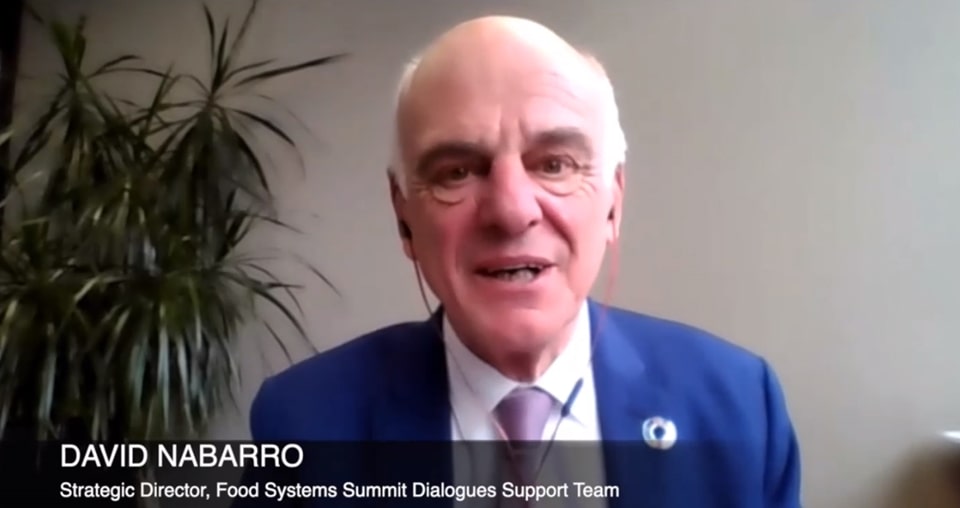
“Individual and collective action are significant to build a future of food that is sustainable and equitable,” stressed Dr. David Nabarro, Strategic Director, Food Systems Summit Dialogues Support Team.
Dr. Gregorio said the UNFSS Independent Dialogue held on 18 May 2021 brought together 56 participants to develop ideas on how to make the food systems in Southeast Asia stronger and more sustainable in three discussion sessions.
The Dialogue included a diverse array of perspectives, including from the academe, government, agro-industry, farmer groups, and the youth to draw out new knowledge, research findings, and policies in agricultural higher education that are needed in the next decade.
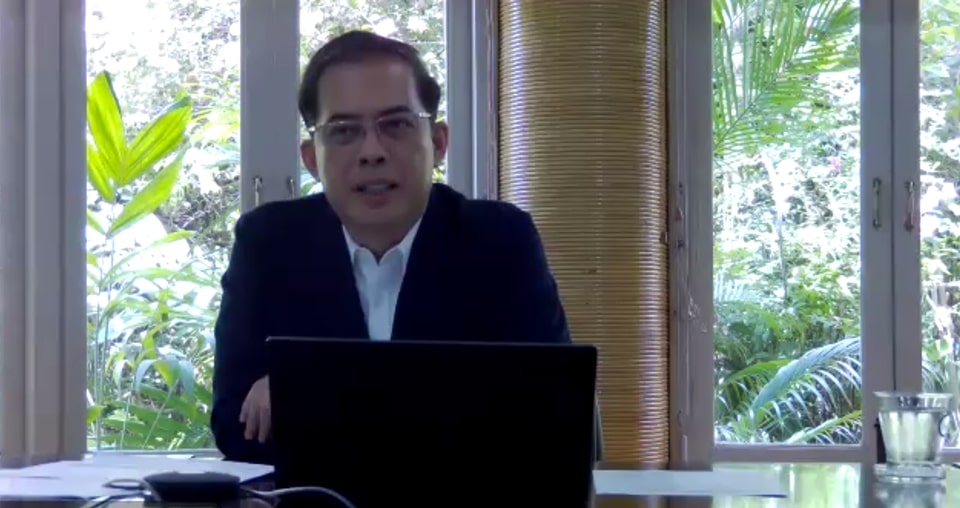 Dr. Dindo M. Campilan, IUCN Regional Director for Asia and Oceania Hub Director and the Dialogue Curator
Dr. Dindo M. Campilan, IUCN Regional Director for Asia and Oceania Hub Director and the Dialogue Curator
Dr. Dindo M. Campilan, Regional Director for Asia and Oceania Hub Director, International Union for Conservation of Nature (IUCN), served as the Dialogue Curator. The three discussion sessions were facilitated by Dr. Jose V. Camacho, Jr., Chancellor, University of the Philippines Los Baños (UPLB); Dr. Shenggen Fan, Professor, China Agricultural University and former Director, International Food Policy Research Institute (IFPRI); and Dr. V. Bruce J. Tolentino, Private Sector Member, Monetary Board, Bangko Sentral ng Pilipinas (BSP).
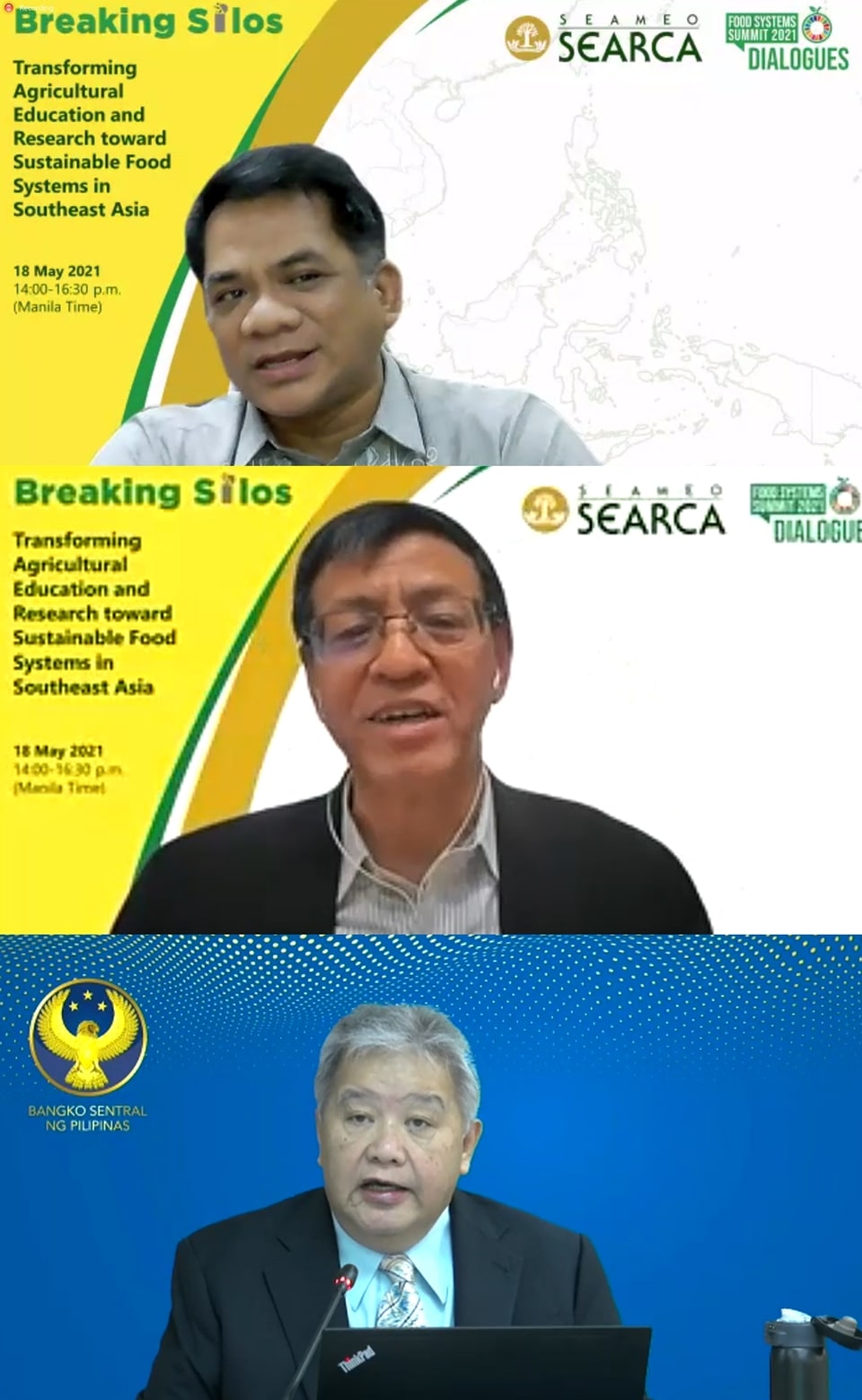 The facilitators of the Discussion Sessions (from the top) were Dr. Jose V. Camacho, Jr., Chancellor, University of the Philippines Los Baños; Dr. Shenggen Fan, Professor, China Agricultural University; and Dr. V. Bruce J. Tolentino, Private Sector Member, Monetary Board, Bangko Sentral ng Pilipinas.
The facilitators of the Discussion Sessions (from the top) were Dr. Jose V. Camacho, Jr., Chancellor, University of the Philippines Los Baños; Dr. Shenggen Fan, Professor, China Agricultural University; and Dr. V. Bruce J. Tolentino, Private Sector Member, Monetary Board, Bangko Sentral ng Pilipinas.
The Dialogue discussed innovative pedagogies and methodologies for more effective dissemination of research results to a wider audience with the end view of inspiring transformations.
SEARCA also gathered from the Dialogue a suite of recommendations on governance strategies and policies as well as strategic alliances needed to ensure a more holistic approach to research and higher education on food systems.
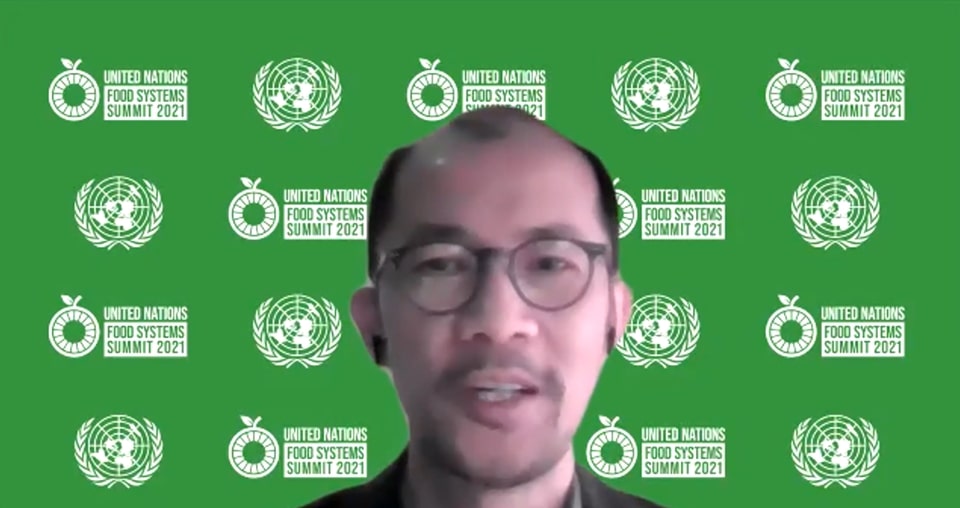 Mr. Oliver Oliveros, Engagement Lead, Food Systems Champion, UNFSS Secretariat
Mr. Oliver Oliveros, Engagement Lead, Food Systems Champion, UNFSS Secretariat
“I think there is a need to assess and adjust agricultural education curricula to shift towards a more integrated and holistic approach veering away from compartmentalization… We need to look into collaboration and various linkages, not only in terms of policies, but also of programs,” said Mr. Oliver Oliveros, Engagement Lead, Food Systems Champion, UNFSS Secretariat, during the Dialogue.
The participants agreed on a number of ways to transform agricultural education and research to strengthen food systems in Southeast Asia. To make curricular programs and pedagogical approaches innovative, the consensus was to promote student enrollment in agriculture-related fields by building a more positive career image in this sector along with scholarships; train agriculture students to be business owners who would return to their hometowns after graduation instead of becoming employees in urban centers; and support non-traditional learners such as farmers to earn their degree through a flexible learning system that gives credit to farmers’ field experience.
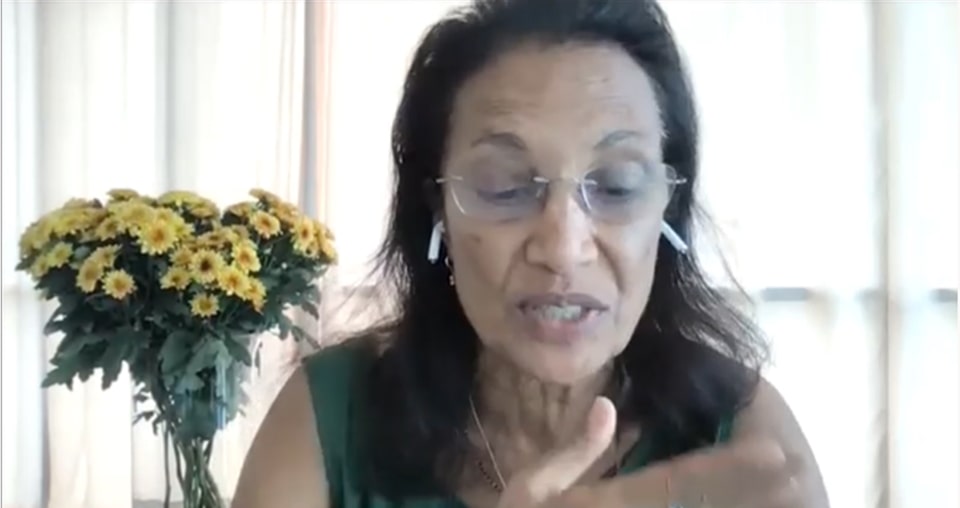 2021 World Food Prize Laureate Dr. Shakuntala Thilsted
2021 World Food Prize Laureate Dr. Shakuntala Thilsted
Moreover, 2021 World Food Prize Laureate Dr. Shakuntala Thilsted said “I propose that we have some regional curriculum on food systems with practical on-field engagement, offered as an elective course for tertiary students from different disciplines—science, policy, economics, social sciences.”
To leverage research for development and extension (RDE) for stronger alliances toward sustainable food systems, the participants agreed that the focus of RDE directions should be on agroecosystems and their impacts on the environment and vice versa, including long-term studies; multistakeholder engagement in landscape-based development planning and integration of multisector plans; incorporate social dimensions in research to account for adaptive capacity; and pooling of research experts and facilities to foster shared governance and themes for participatory work and adopting a multidisciplinary research approach.
Overall, the key recommendations that emerged from the discussions on imperatives for governance and policies towards an enabling environment are to start small and build on small successes to upscale solutions in food systems; look at basic research and policy support for the development of new varieties and breeds, agricultural systems technologies, postharvest management, food quality and nutrition, and weather forecasting; shift from national government-controlled systems to the national agricultural research and extension systems model, which links research extensions and other stakeholders for an inclusive and multistakeholder approach; and facilitate and push for farmers to be given a seat in government to enable them to participate in decision-making.
SEARCA has submitted the outcomes of the Dialogue to the organizers of the UN Food Systems Summit. The information will be used by organizers to feed into the Summit’s five priority Action Tracks as well as the preparatory work of its Scientific and Advisory Groups, Champions Network, and other Summit support structures.
